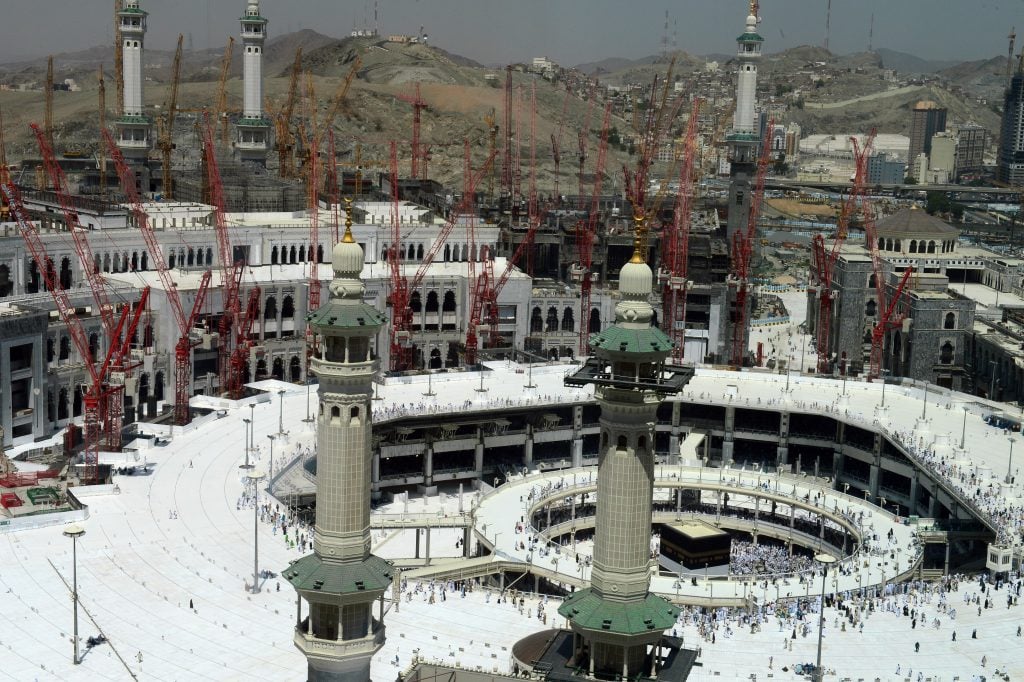Art World
Saudi Arabia Destroyed 98 Percent of Its Cultural Heritage


Lorena Muñoz-Alonso

According to the UK-based Islamic Heritage Research Foundation, over 98 percent of Saudi Arabia’s historical and religious sites have been destroyed since 1985, Time reports.
The Saudi rulers have a long history of destroying heritage sites, but experts say the scope has increased dramatically of late. Key mosques and historical sites from the time of Muhammad and the Ottoman-era have been demolished relentlessly.
The expansion of the Grand Mosque in Mecca, begun in 2011 with a staggering $21 billion budget, has created the biggest controversy. To implement the project, the arched porticos erected three centuries ago by the Ottomans and the eighth-century columns that encircle the Kaaba—the sacred black cube located in the center of Mecca—have been completely flattened.
Saudi officials argue that the expansion is necessary to accommodate the increasing number of pilgrims to the city, currently in the realm of 17 million individuals each year. But activists say that this project and all other recent demolitions are part of a government campaign to erase historical and religious sites across Saudi Arabia, in keeping with the Wahhabi doctrine.
Wahhabism, the prevailing Saudi strain of Islam, disapproves of visits to religio-historical sites in order to prevent Islam’s gravest sin: worshiping anyone other than God (also known as “idolatry”).
There have even been rumors of a project to destroy the tomb of the prophet Muhammad and move his remains to an anonymous grave. “It’s as if they wanted to wipe out history,” Ali al-Ahmed, director of the Institute for Gulf Affairs in Washington DC, told Time.
Many have questioned why, in light of such dramatic events, international response has been so subdued. But, in the case of Mecca, for example, the Saudi government never submitted the city for inclusion on the list of World Heritage Sites, so technically speaking, UNESCO can’t intervene.